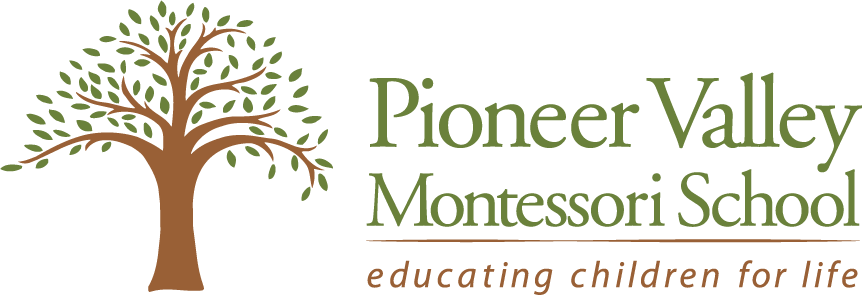Montessori-Specific Practices
Montessori Philosophy Overview
The Montessori approach is a child-centered educational method that emphasizes independence, respect, and holistic development. Founded by Dr. Maria Montessori, it is based on the belief that children learn best in a prepared environment that supports every individual child's natural curiosity and developmental needs.
At Pioneer Valley Montessori School, our role is to guide each child along their individual learning journey. We trust in the child’s inner drive to learn and aim to create an environment that fosters:
Key Principles of Montessori Practice
At Pioneer Valley Montessori School, our work is grounded in the principles developed by Dr. Maria Montessori and sustained through years of practice and observation. These principles remind us that teaching is not about directing the child, but about preparing an environment and modeling a way of being that allows each child’s natural curiosity, independence, and sense of community to flourish.
All staff — whether in the classroom, on the playground, or in the office — play a vital role in creating a respectful, orderly, and nurturing environment that supports every child’s growth.
Respect for the Child
Respect is the foundation of Montessori education. Every interaction with a child should demonstrate our belief in their dignity, capability, and individuality.
Examples of respectful practice include:
Using positive language: Instead of “Don’t run,” say, “Please walk.”
Protecting independence: Allowing a child to pour water, zip a coat, or clean a spill, even if it takes longer.
Acknowledging feelings: “I see you’re upset because your work was interrupted. Let’s find a quiet place together.”
Protecting concentration: Avoid interrupting a child who is deeply engaged unless safety is a concern.
The Prepared Environment
The Montessori environment, indoors and outdoors, is carefully prepared to meet the developmental needs of the children it serves. It encourages independence, freedom of movement, and purposeful activity. Because the environment is considered part of the teaching team, each adult shares responsibility for maintaining it with care and intention.
Staff responsibilities include:
Order and accessibility: Materials are arranged from simple to complex and placed where children can reach them independently.
Beauty and care: A clean, uncluttered, well-maintained classroom communicates respect.
Developmentally appropriate materials: Practical Life and other works are rotated regularly to match children’s needs.
Environment as teacher: The space itself should guide independence — child-sized furniture, labeled shelves, and defined work areas.
Maintaining the environment is not housekeeping — it is a pedagogical act. When children see adults caring for their space thoughtfully, they learn to do the same.
Freedom Within Limits
Freedom in a Montessori classroom is guided, not unrestricted. It helps children develop internal order, respect for others, and confidence in their ability to make good decisions.
Staff responsibilities include:
Setting clear, consistent expectations for classroom routines and respectful behavior.
Allowing children to choose their work freely as long as it is purposeful, safe and appropriate
Intervening calmly when choices disrupt others or the environment.
Modeling self-control, patience, and kindness in moments of challenge.
Freedom within limits allows children to experience autonomy — acting with purpose and care, not merely doing as they please.
Hands-On, Self-Paced Learning
Learning in a Montessori classroom is self-directed and experiential. Children are helped to choose meaningful work, repeat it as needed, and learn through doing — not through correction or comparison.
Staff responsibilities include:
Presenting lessons based on individual readiness and observation.
Allowing time for repetition, trusting the child’s process without rushing.
Encouraging self-correction and discovery instead of providing immediate answers.
Offering neutral, supportive feedback rather than praise or comparison.
Maintaining and rotating materials to sustain curiosity and engagement.
By stepping back and trusting the process, staff allow children to take ownership of their learning — the essence of Montessori education.
Multi-Age Groupings
Multi-age classrooms reflect the diversity and interdependence of the real world. Each child has opportunities to learn, lead, and contribute according to their stage of development. Encouraging peer teaching, collaboration, and mutual respect, multi-age classrooms foster belonging and community — essential elements of lifelong learning.
Discipline Aligned with Montessori
Montessori discipline is rooted in guiding children toward inner discipline rather than relying on external control. Our role is to help children develop respect for themselves, others, and the environment.
Model grace and courtesy
Encourage natural consequences
Maintain consistency
Support internal motivation over external rewards
Helping children reflect on their actions and make amends when needed.
Role of Observation & Record Keeping
Observation is central to Montessori practice and guides every teaching decision. Accurate observation allows teachers to know when a child is ready for new lessons and when they need support.
AMS Accreditation Staff Reminder:
These Montessori practices are not optional. They form the foundation of our accreditation and our mission as a Montessori school. Each adult in the environment montessori trained or otherwise must consistently uphold these principles to ensure the integrity of the program and the success of our students.
